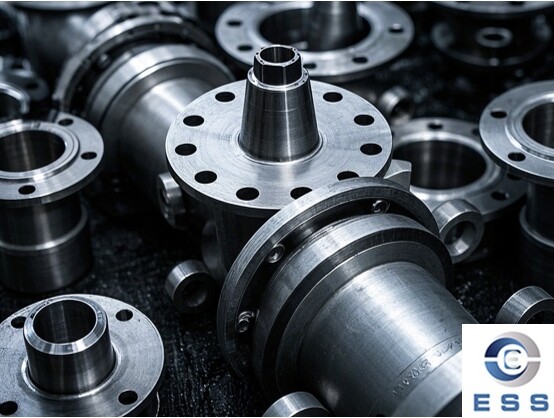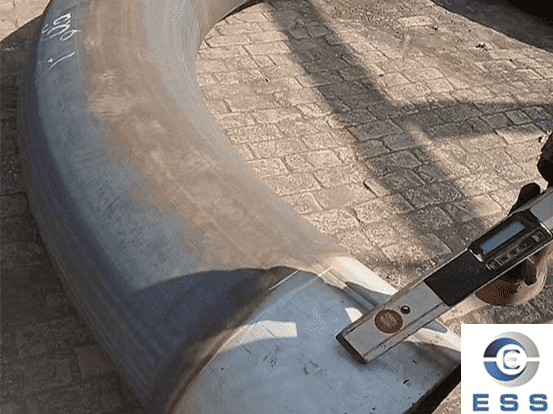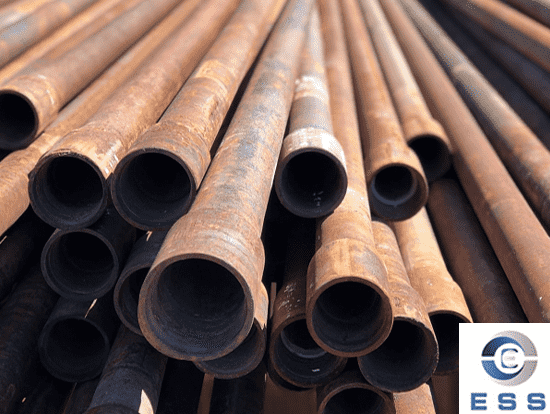American standard carbon steel pipe flange is
mainly divided into pressure grades according to the ANSI/ASME B16.5 standard.
This standard divides the pressure grades into different levels, mainly based
on the working pressure that the flange can withstand in the pipeline system,
while taking into account the impact of factors such as temperature on the
performance of the flange.
These pressure grades are divided to ensure
the safety and reliability of the flange under various working conditions, and
can be easily matched with pipeline systems with different pressure
requirements. The following are specific pressure grade classifications and
ranges:

Class 150:
This is a relatively common lower pressure
grade. At room temperature, its maximum allowable working pressure is
relatively low, and it can withstand a pressure of about 1.93-2.07MPa (the
allowable pressure of flanges of different sizes is slightly different). It is
mainly used in some low-pressure non-critical pipeline systems, such as
ordinary water supply and drainage systems, low-pressure steam transmission
systems, etc. For example, in the steam heating system of some small factories,
if the steam pressure is low, the use of Class 150 carbon steel pipe flanges
can meet the requirements.
Class 300:
The pressure bearing capacity is improved.
At room temperature, the maximum allowable working pressure is about 5.17 -
5.52MPa. It is suitable for medium and low pressure chemical, petroleum and
other industrial pipeline systems, such as pipelines that transport some oil
products or chemical raw materials with moderate pressure. Taking the crude oil
pipeline of the refinery as an example, if the pressure of some pipelines is
not particularly high, the use of Class 300 flanges can effectively connect the
pipelines and ensure safety.
Class 400:
Its pressure grade is between Class 300 and
Class 600. At room temperature, the maximum allowable working pressure is about
6.89 - 7.58MPa. Flanges of this pressure grade are used in some specific
industrial occasions, such as pipeline systems in chemical plants that
transport some corrosive media that have certain pressure requirements but do
not reach the Class 600 pressure grade.
Class 600:
It belongs to a higher pressure grade. The
maximum allowable working pressure at room temperature is about 10.34 -
11.03MPa. It is often used for pipeline connections in high-pressure chemical,
petrochemical and other fields, such as in high-pressure natural gas
transmission pipeline systems, or in the pipeline section that transports
high-pressure reaction materials in chemical plants.
Class 900:
Higher pressure bearing capacity. The
maximum allowable working pressure at room temperature is about 15.51 -
17.24MPa. It is used in some pipeline systems that require higher pressure and
more special media, such as in high-temperature and high-pressure synthetic
ammonia plants, some pipelines need to use Class 900 flanges to ensure the safe
and stable operation of the system.
Class 1500:
This is a very high pressure rating. The
maximum allowable working pressure at room temperature is about 25.86 -
29.31MPa. It is usually used for ultra-high pressure industrial pipeline
systems, such as pipeline connections in extreme high-pressure environments
such as ultra-high pressure hydrocracking units.
Class 2500:
It is one of the highest pressure grades in
the American standard flange. The maximum allowable working pressure at room
temperature is about 42.41-47.63MPa. It is mainly used in special industrial
pipeline systems with extremely high pressure requirements, such as some
high-pressure pipeline connections in deep-sea oil production, or pipeline
connections in some ultra-high pressure experimental devices.
Summary
In short, the pressure grades of American
standard carbon steel pipe flanges divided according to the ANSI/ASME B16.5
standard mainly range from Class 150 to Class 2500, which are suitable for
different working environments and requirements. When purchasing, you should
consult the relevant flange supplier according to specific needs and choose the appropriate pipe flange to ensure
the safety and normal use of the pipe flange.













 Eastern Steel Manufacturing Co.,Ltd not only improve product production and sales services, but also provide additional value-added services. As long as you need, we can complete your specific needs together.
Eastern Steel Manufacturing Co.,Ltd not only improve product production and sales services, but also provide additional value-added services. As long as you need, we can complete your specific needs together.










